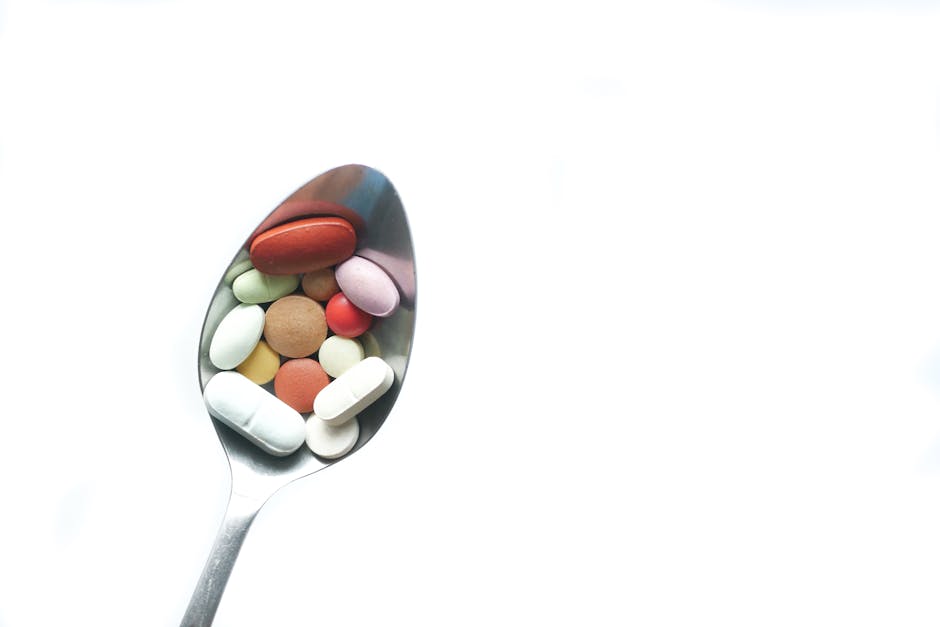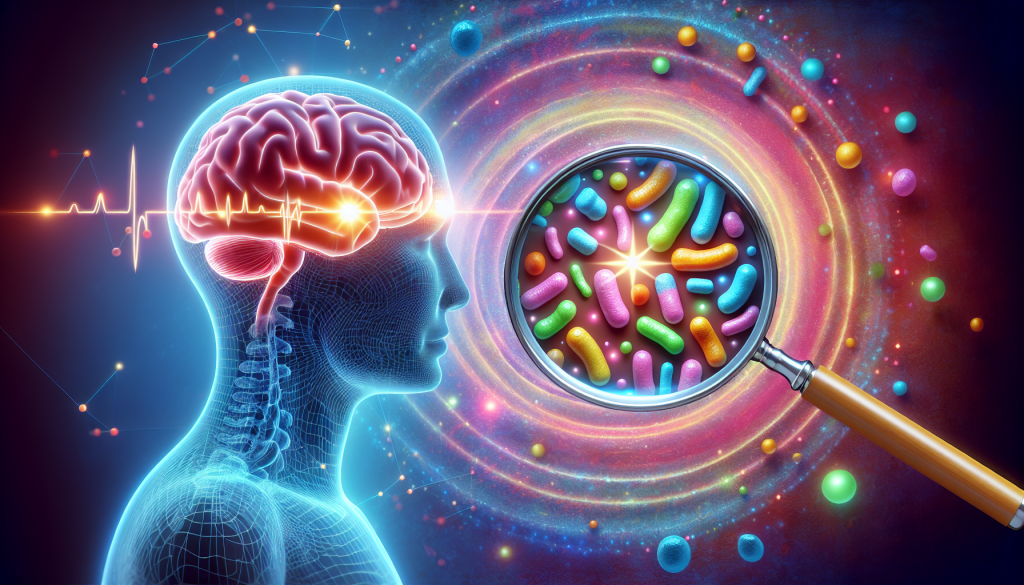Understanding the role of probiotics in mental health might sound like a plot twist in a sci-fi novel, but it’s a real and exciting area of research. Probiotics, often found in yogurt and supplements, are live bacteria that can benefit your gut. But did you know they might also help your brain? This connection between gut health and mental well-being is a hot topic, and for good reason. So, grab a comfy seat and let’s dive into this fascinating world where tiny gut bugs might just be the key to a happier mind.
Key Takeaways
- Probiotics are live bacteria that can improve gut health and potentially mental well-being.
- The gut-brain axis is a communication network linking the gut and brain.
- Gut microbiota can influence mood, cognitive function, and emotional regulation.
- Probiotics may help balance gut bacteria, reduce inflammation, and improve mental health.
- Consuming probiotic-rich foods can enhance gut health and support long-term mental well-being.
Introduction to Probiotics and Mental Health
Definition of Probiotics
Probiotics are the friendly bacteria that live in your gut. They are like the peacekeepers of your digestive system, helping to maintain a healthy balance of microorganisms. You can find them in fermented foods like yogurt, sauerkraut, and kimchi, or in dietary supplements. These tiny warriors are known for their role in digestion, but they might also have a say in how you feel emotionally.
Overview of Mental Health
Mental health is a broad term that encompasses our emotional, psychological, and social well-being. It affects how we think, feel, and act in our daily lives. From anxiety and depression to stress and mood swings, mental health issues can impact anyone. Understanding the factors that influence mental health is crucial for finding ways to improve it.
Connection Between Gut Health and Mental Well-being
The gut and brain are like old friends who chat all the time. This connection is known as the gut-brain axis. It’s a two-way street where signals travel back and forth, influencing both gut health and mental well-being. Probiotics play a role in this conversation, potentially affecting how we feel and think.

The Gut-Brain Axis
Explanation of the Gut-Brain Axis
Imagine a telephone line connecting your gut and brain. This is the gut-brain axis, a complex communication network that links the two. It’s like a secret language that involves nerves, hormones, and even the immune system. This axis allows the gut and brain to share information, influencing each other’s function.
Influence of Gut Microbiota on Brain Function
The gut microbiota, the community of microorganisms living in your gut, can have a big impact on your brain. These tiny residents produce chemicals that can affect mood and cognitive function. They are like little chemists, mixing up cocktails that can either calm or excite the brain.
Impact on Mood and Cognitive Function
Ever had a “gut feeling” about something? That’s your gut talking to your brain. The gut microbiota can influence mood and cognitive function, potentially affecting how you think and feel. Studies suggest that a healthy gut can lead to a happier mind, while an imbalanced gut might contribute to mood disorders.
Role in Emotional Regulation
Emotional regulation is like a thermostat for your feelings. The gut microbiota can play a role in this process, helping to keep emotions in check. By influencing the production of neurotransmitters like serotonin, the gut can affect how we respond to stress and emotional challenges.

The Gut Microbiome and Brain Development
Importance in Neurodevelopmental Psychiatric Disorders
The gut microbiome is like a bustling city of microorganisms, each playing a role in maintaining health. In the context of brain development, these microbes can influence neurodevelopmental psychiatric disorders. Research suggests that an imbalanced gut microbiome might be linked to conditions like autism and ADHD.
Influence on Brain Health and Disease
The gut microbiome doesn’t just stop at development; it also plays a role in brain health and disease. By influencing inflammation and immune responses, the gut can impact conditions like depression and anxiety. It’s like having a tiny army in your gut, ready to defend against mental health challenges.

Mechanisms of Probiotics in Mental Health
Balance of Gut Bacteria and Emotional States
Probiotics can help balance the gut bacteria, which in turn can influence emotional states. It’s like tuning a radio to the right station, ensuring that the signals between the gut and brain are clear and positive. By promoting a healthy gut environment, probiotics may help improve mood and reduce anxiety.
Gut Inflammation and Mental Health Issues
Inflammation in the gut can be like a storm brewing, potentially leading to mental health issues. Probiotics can act as peacemakers, reducing inflammation and promoting a calm gut environment. This, in turn, can have a positive impact on mental health, helping to alleviate symptoms of depression and anxiety.

Benefits of Probiotics for Mental Health
Improved Mood and Reduced Anxiety
Probiotics have been shown to improve mood and reduce anxiety in some studies. By promoting a healthy gut environment, they can help regulate the production of neurotransmitters that influence mood. It’s like having a personal cheerleader in your gut, encouraging positivity and calmness.
Enhancing Gut Health Through Diet
A healthy diet can be a powerful tool for enhancing gut health and supporting mental well-being. By incorporating probiotic-rich foods into your diet, you can nurture your gut and potentially improve your mental health.
Consumption of Probiotic Foods
Eating foods rich in probiotics, like yogurt, kefir, and fermented vegetables, can be a delicious way to support your gut health. These foods provide the friendly bacteria your gut needs to thrive, promoting a balanced microbiome and a happier mind.
Long-term Mental Well-being
Consistently consuming probiotics can support long-term mental well-being. By maintaining a healthy gut environment, you can help protect against mental health challenges and promote overall emotional resilience.
Conclusion
Summary of Probiotics’ Role in Mental Health
Probiotics are more than just gut-friendly bacteria; they are potential allies in the quest for better mental health. By influencing the gut-brain axis, balancing gut bacteria, and reducing inflammation, probiotics can play a significant role in improving mood and reducing anxiety.
Future Directions and Research Opportunities
The field of probiotics and mental health is still growing, with many exciting research opportunities on the horizon. As scientists continue to explore this connection, we may discover even more ways that probiotics can support mental well-being. So, keep an eye on this space, and consider adding some friendly bacteria to your diet for a happier, healthier mind.
For more insights on the connection between gut health and mental well-being, check out this article and explore the link between gut health and mood. Additionally, learn about the impact of nutritional deficiencies on mental health for a broader understanding of mental health influences.
Unlocking the Mind: FAQ on Understanding The Role Of Probiotics In Mental Health
What are probiotics and how do they relate to mental health?
Probiotics are live microorganisms, often referred to as ‘good’ bacteria, that provide health benefits when consumed in adequate amounts. Recent research suggests a connection between gut health and mental well-being, indicating that probiotics may influence mental health by affecting the gut-brain axis, a communication network linking the gut and the brain.
How do probiotics affect the gut-brain axis?
Probiotics may modulate the gut-brain axis by altering the gut microbiota composition, which in turn can influence brain function and behavior. They can produce neurotransmitters and short-chain fatty acids, reduce inflammation, and enhance the gut barrier function, all of which may contribute to improved mental health outcomes.
Can probiotics help with anxiety and depression?
Some studies suggest that certain strains of probiotics may help alleviate symptoms of anxiety and depression by reducing inflammation, balancing neurotransmitter levels, and improving gut health. However, more research is needed to fully understand their efficacy and the specific strains that may be most beneficial.
Are there specific probiotic strains that are beneficial for mental health?
While research is ongoing, certain strains such as Lactobacillus helveticus and Bifidobacterium longum have shown promise in improving mood and reducing anxiety. It’s important to note that the effects of probiotics can be strain-specific, and not all probiotics will have the same impact on mental health.
How long does it take for probiotics to have an effect on mental health?
The time it takes for probiotics to affect mental health can vary depending on the individual and the specific strains used. Some studies have reported improvements in mood and anxiety symptoms within a few weeks, while others may take longer. Consistent use and choosing the right strains are key factors in achieving potential benefits.
Are there any side effects associated with taking probiotics for mental health?
Probiotics are generally considered safe for most people, with few side effects. Some individuals may experience mild digestive issues, such as gas or bloating, when starting probiotics. It’s advisable to consult a healthcare professional before starting any new supplement, especially for individuals with underlying health conditions.
Can probiotics be used alongside traditional mental health treatments?
Probiotics can often be used as a complementary approach alongside traditional mental health treatments, such as medication and therapy. They may enhance overall treatment outcomes by supporting gut health and potentially improving mood. However, it’s important to discuss any new supplements with a healthcare provider to ensure they fit into your treatment plan.
How should one choose a probiotic supplement for mental health?
When selecting a probiotic for mental health, look for products that contain specific strains known for their potential mental health benefits, such as Lactobacillus and Bifidobacterium species. It’s also important to choose a reputable brand that provides information on the strain, CFU count, and storage recommendations to ensure product quality and efficacy.
Are there natural food sources of probiotics that can benefit mental health?
Yes, fermented foods such as yogurt, kefir, sauerkraut, kimchi, and miso are natural sources of probiotics. Incorporating these foods into your diet can help support gut health and potentially benefit mental well-being. However, the probiotic content in foods can vary, so supplements may be necessary for targeted mental health support.
What does the future hold for probiotics in mental health research?
The field of probiotics and mental health is rapidly evolving, with ongoing research exploring the complex interactions between gut bacteria and the brain. Future studies aim to identify specific strains and mechanisms that can be harnessed for mental health benefits, potentially leading to more personalized and effective probiotic therapies.



